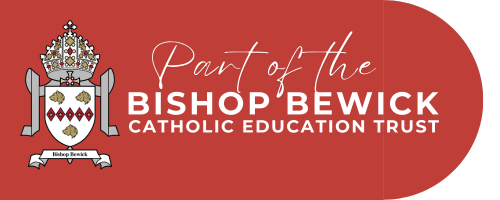English

English
Intent:
READING:
At Sacred Heart Primary School, we understand how important it is for our pupils to have a love of Reading. We have therefore created a carefully thought out curriculum, to ensure the reading journey our pupils experience is meaningful, successful and one where children see themselves represented in books but also learn about others; leaving us with a legacy of knowing and loving books.
At Sacred Heart we aim to provide all children with a high-quality, language rich Reading curriculum. We will teach pupils to read fluently both fiction and non-fiction, to develop their knowledge, foster aspiration and broaden their horizons through inspirational texts. Our choice of texts will establish an appreciation and love of reading in addition to a sense of justice, diversity, empathy and respect for themselves and our community. We want children to see books as mirrors and windows, by seeing themselves represented in books but also learning about other people’s lives. Children will be familiar with fiction, non-fiction and different types of poetry. It is our intention to ensure that by the end of their primary education, all pupils are able to read fluently, and with confidence, equipped to succeed now and in the future.
WRITING:
At Sacred Heart Primary School, we believe that the English curriculum prepares all pupils to lead a full life by teaching the skills they need to communicate effectively and confidently with others, both in speech and writing. We understand how important it is for our pupils to have a love of writing. We have therefore created a carefully thought out curriculum, to ensure the writing journey our pupils experience is purposeful, successful and one which prepares them for the next stage of their education.
At Sacred Heart we believe that all pupils should be able to confidently communicate their knowledge, ideas and emotions through their writing. We want pupils to acquire a wide vocabulary, a solid understanding of grammar and be able to spell new words by effectively applying the spelling patterns and rules they learn. We want them to write clearly, accurately and coherently, adapting their language and style in and for a range of contexts, purposes and audiences. We believe that all pupils should be encouraged to take pride in the presentation of their writing, in part by developing a good, joined, handwriting style by the time they move to secondary school. We believe that all good writers refine and edit their writing over time, so we want children to develop independence in being able to identify their own areas for improvement in all pieces of writing, editing their work effectively during and after the writing process. We believe all good writers share ideas and use their voice confidently to share their opinions, thoughts and ideas.
Implementation:
READING:
We teach reading as a whole class lesson, so all children have access to the age-related skills and knowledge contained in the National Curriculum. We use strategies from Hooked on Books throughout school, which involve the use of ‘book talk,’ bonus vocabulary words and a marking points system that children can do independently or in pairs. The reading process is modelled by staff and children can see the ‘thinking aloud,’ process which helps them with their own answers. We use resources from Literacy Shed, involving VIPERS work which we share with parents to encourage the development of reading skills at home. Children partake in a weekly comprehension so they are able to embed the skills they have developed.
To promote a love of reading we have teachers as readers throughout school, teachers share books they are reading with children and they read children’s books so they can recommend books at an age appropriate level. We invite authors into school so children can meet and discuss questions with them as well as learning about their new books.
WRITING:
We teach writing as whole class lessons, so that all children have access to the age-related skills and knowledge contained in the National Curriculum. We use strategies from The Write Stuff throughout the school, which involve the use of sentence stems, plot points. boxing up, ‘dressing,’ writing correctly and vocabulary vaults. The writing process is modelled through carefully selected units of work, inspiring texts and film to engage our students.
Grammar and Punctuation: Grammar and punctuation knowledge and skills are taught through English lessons as much as possible. Teachers plan to teach the required skills through the genres of writing that they are teaching, linking it to the genre to make it more connected with the intended writing goal. Teachers sometimes focus on particular grammar and punctuation skills as stand-alone lessons, if they feel that the class need additional lessons to embed and develop their understanding or to consolidate skills. We understand the impotence of inter leaved learning and helping children embed the knowledge we are teaching them into their long-term memory. Therefore, we have a ‘can you still?’ section in every unit with the non-negotiables children should be able to use based on previous knowledge.
Presentation: Handwriting is not only taught discretely; it is an integral part to any lesson and is reinforced daily. Children are expected to use joined, legible handwriting and work towards achieving their pen licence, where they can then write in blue pen.
Spellings: Spellings are taught according to the rules and words contained in the English National Curriculum. Teachers use the Read Write Inc methods to support their teaching. Children are given a ‘spell of the day,’ to take home and learn as well as understanding the word so they can use it in their written work.
Impact:
READING:
All children love reading. Children can discuss books, authors and genres confidently with others. Children have been able to see themselves represented in a book but also learnt about another person from reading their stories. Children will develop their cultural capital by being exposed to many different stories and genres within our curriculum and they will understand the role they play in the global community. We aspire to leave each child with a legacy of knowing and loving books.
N.B. This policy should be read in conjunction with our Phonics Policy, which sets out the approach we use in school to teach children to read, write and spell.
WRITING:
All children will enjoy writing across a range of genres, make links and apply their skills in all areas of the curriculum. Children of all abilities will be able to succeed in all English lessons because work will be appropriately scaffolded. They will have developed a wide vocabulary that they are able to use within their writing and will have a good knowledge of how to adapt their writing based on the context and audience. Children will leave school being able to effectively apply the spelling rules and patterns they have been taught. Children will understand the importance of using their voice and understand the impact this can have.

